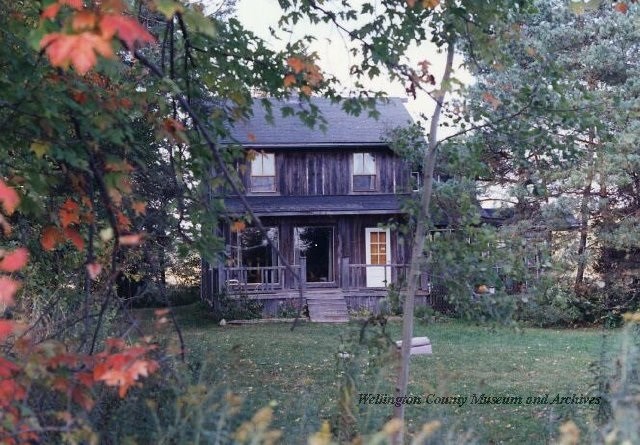When we look into the history of a community, we often find that the connections between 'Then and Now' exist not only in locations, buildings, artifacts and memorials, but also – even more so – in the people around us.
Back in November, this column told readers about a local legend which claimed that Jesse James, the notorious outlaw of the Old West, once visited this area. According to the story, he tossed a $20 gold piece to a young girl named Jane Elizabeth Lillie who was operating a toll gate.
That article was brought to the attention of Harold Perkins of Guelph. Mr. Perkins is Jane’s great-great grandson.
As a young boy, Perkins knew his great-great grandmother. He also knew about the gold piece she said she’d received from Jesse James, because not long before she passed away, she gave it to him. Unfortunately, Perkins doesn’t know what has become of the coin, and thinks it might have been stolen. He recalls being told that the man on the beautiful horse who gave the gold piece to a little girl was a stranger in the community and that a coin of that value wasn’t something that most honest, working people would have.
He doesn’t recall his great-great grandmother explaining how she knew the stranger was the infamous Jesse James, but has no doubt of the truth of her story.
Jane’s own story provides a look into life in Guelph and Wellington County in the 19th century. She was born in Guelph Township on July 31, 1864, (not all documents agree on the year) the third child of John and Ellen Lillie. The Lillies’ forebears were from Scotland and had settled in the area in Guelph Township known as the Scotch Block.
John ran a stagecoach stop and rest house at Marden on what was then called the Elora Road. In addition to selling refreshments to travellers, he collected money at the toll gate. Collecting road tolls was a common source of government revenue in those days. Evidently the Lillie children sometimes filled in for the parents at that duty, as it was little Jane, then about eight years old, who was paid a $20 gold piece by a stranger on horseback who didn’t have anything smaller on him.
The Lillie family moved to West Garafraxa where John and Ellen ran the Sheaf of Wheat Hotel at the corner of the Orangeville Road and the Fifth Line. Hotels in rural Ontario at that time didn’t always offer first-class accommodations.
Sometimes there were just two rooms; a dining room/barroom where men slept on the floor, and another room where women and children slept. Travellers were grateful just to have a roof over their heads for the night, especially in the winter. However, there was always a hot meal on the table, and a hostler to take care of the horses. The Sheaf of Wheat was a two-storey building, and somewhat more spacious than some of the other establishments.
Jane’s siblings would eventually move to various communities in Wellington County, including Guelph and Fergus. On February 21, 1883, Jane married Thomas Borthwick in Rockwood. The Borthwicks were also Scots, and one of them – Enoch – was a policeman in Guelph. Thomas and Jane would have four daughters; Laura, Mabel, Lillie May and Helen Irene, and two sons; James and Charles Edward.
When they were first married, Thomas and Jane lived in a cabin near Everton, where Thomas ran a sawmill. Then in 1897 they bought the Sheaf of Wheat from Jane’s parents. The Local Option legislation which prohibited the sale of alcoholic beverages in Wellington County had seriously undermined revenue for rural hotels, so the couple decided not to continue with the business, but use the building as a private residence. Thomas worked as a carpenter, building and repairing homes and barns. He also did roadwork, driving a team as a grader.
Thomas died in 1935. Jane continued to live in the former hotel with her son Charles. The building was very close to the road, which had been advantageous in the days of horse-drawn coaches, but not so much in the age of the automobile.
One July day in 1959, Jane was sitting in her rocking chair in the living room watching TV, when a car went off the road and crashed right through the wall of the frame house. The 95-year-old woman was thrown across the room and broke her hip. She never walked again, and spent her remaining years in Groves Memorial Hospital in Fergus.
Jane was an avid fan of the Toronto Maple Leafs, and listened to their games regularly on the radio. When the Maple Leafs learned of the elderly woman who was a loyal supporter, they sent her a program signed by the whole team.
Jane died on September 17, 1963, in her 100th year. Through his personal relationship with his great-great grandmother, Harold Perkins has connected Then and Now to a bygone time when stagecoaches and maybe even Jesse James travelled the roads of Wellington County.



